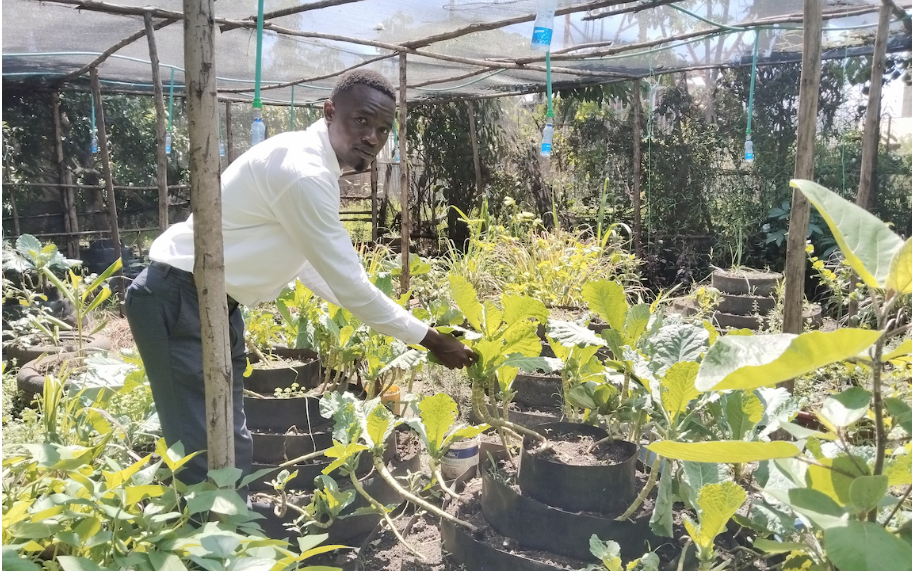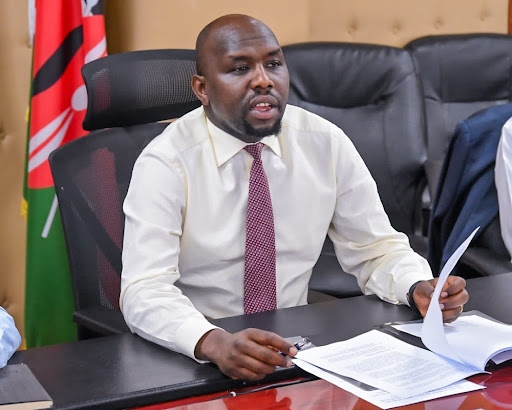

In the heart of Manyatta, one of Kisumu’s bustling informal settlements, a group of youths have turned idleness into innovation and garbage into green gold.
It began in 2020 during the COVID-19 lockdown, when many lost jobs, businesses closed and the future looked uncertain.
Five unemployed youths, feeling the weight of the pandemic, decided to pool their little savings through a merry-go-round.
“We had little money and no jobs and wanted to have an income-generating activity that could solve our financial problems. We had a shared determination and that is when we decided to venture into vegetable farming,” recalls Evance Okoth, co-founder of the initiative.
With markets closed and food prices skyrocketing, the group started growing vegetables not just to feed themselves but also to offer affordable produce to their neighbours.
At a time when access to basic food was limited, their small plot quickly became a lifeline.
What started as a necessity soon grew into a movement.
By 2021, the group had named themselves Metameta Youth Group. In 2022, they formally registered Manyatta Metameta CBO, expanding their reach to include women, schools and youth groups in the area.
Operating in a constrained space, the group faced immediate challenges which included limited land, unreliable water and environmental degradation. But instead of seeing this as obstacles, they saw an opportunity.
“We didn’t have land, so we had to think big,” says Emanuel Onyango, the group’s coordinator and an ICT graduate from Maseno University.
“That’s when we started experimenting with conical gardens and other space-saving techniques.”
Using grants from organisations such as Muungano wa Wanavijiji, they acquired 10 conical gardens, towering vertical structures, that can each support up to 120 seedlings while using minimal water.
The conical garden, tall, soil filled structures shaped like giant funnels stand in the heart of the farm, build in layers, each rises nearly a metre tall and is packed with rows of leafly greens spiralling from top to bottom.
Besides this venture they also began repurposing discarded vehicle tyres, jerricans and even milk packets as planters. Sacks became vertical gardens and broken pots were turned into herb gardens.
The team also began collecting plastic waste from their environmental restoration clean-ups along River Auji, transforming pollution into tools for food production.
“We’ve learned to turn trash into treasure,” says Onyango.
Today, their compact urban farm produces spinach, kale, bulb onions, African traditional vegetables, lemongrass, rosemary and more.
They’ve stopped buying seedlings from suppliers, relying instead on their own nursery.
Vendors now come directly to their farm to pick up fresh produce, reducing the community’s reliance on distant markets like Kibuye.
For Many in the community, the impact has been transformative.
Margret Achieng, a single mother of two, learned how to build a sack garden after attending one of the Metameta’s trainings.
“I used to spent nearly spend over Sh70 daily on vegetables, now I grow my own sukuma and spinach in two sacks outside my door,” she proudly says, adding that it saves money and gets children what's healthier.
Sometimes she even shares some with her neighbours.
Manyatta Metameta CBO has become a learning hub, training over 500 youths and women in urban farming and organic pest control.
Currently, they are training an additional 250 participants in greenhouse installation and high-value crop production.
Their methods are not only sustainable but scalable providing a model that other informal settlements can replicate. Two other youth groups have already started adapting Metameta’s kitchen garden concept, using items as simple as old basins and plastic bottles.
According to Oduor Tracy, one of the group members, they have households growing their own vegetables in buckets and containers.
She notes this has improved food security and put money in people’s pockets.
“Personally, it helps me feed my daughter and pay her school fees.”
Despite the remarkable progress, the group continues to face challenges.
According to Okoth, access to water remains a pressing issue.
He says their first self-dug well yielded only salty water and they are now fundraising to purchase a water tank to support their irrigation needs.
They also operate on leased land, which restricts them from building permanent structures or planning long-term expansions.
“Working on leased land means we’re constantly limited,” explains Okoth, adding that they can’t invest in certain things because the land isn’t theirs.
Pests and environmental hazards have also been persistent problems.
Birds initially destroyed large portions of their crop, but the group installed shed nets to mitigate the issue. Snails once overran their beds, but they are now using organic pest control to keep them at bay.
“We’ve learned everything through trial and error,” says Onyango. “Each mistake has taught us something.”
Still, their vision for the future is ambitious.
In the next five to 10 years, Manyatta Metameta CBO hopes to establish model climate-smart farms, incubate youth- and women-led agribusinesses, and build a cooperative network to boost local economies.
“We want to move our people from survival to sustainability,” Okoth says. “We’re not just growing food, we're growing independence.”
The group also hopes to inspire others, especially youth, to take ownership of their futures.
Their message is clear, ‘change doesn’t require perfect conditions, it just needs courage and commitment.’
“Start small, start with what you have,” Onyango advises. “You don’t need to have everything figured out. Just take the first step, and keep going.”
Currently the group is seeking partners and support to expand their impact with the need of 10,000 litres water tank to improve irrigation, permanent land or long term leases to build a modern training farm and a support got youth training programs and greenhouse kits.










